Hellboy has almost always been a property that has deserved better than it has been given. Ron Perlman starred in a spectacular film, but outside of that the property has had all the potential going for it, but only ever middling execution. It’s almost as though the people who work with it don’t quite understand what to do with such a distinctive and interesting character. Unfortunately Hellboy: Web of Wyrd is not any different in that regard.
There are plenty of quality analyses out there about Hellboy. Most of them highlight the thematic depth behind the character and scenario. “Hellboy a very clear depiction of Sigmund Freud’s psychoanalytic model of the psyche at work,” writes one analysis. “Specifically, this model involves the struggle between id (one’s natural, unfiltered, unconscious desires, needs, and instincts) and the super-ego (the compulsion to follow societal and cultural rules that comes with being a member of society), with the ego acting as a mediator by balancing the pleasure-seeking tendencies of the id with the rule-following morality of the super-ego.
“This conflict between his demonic and human sides is an external mirror of the internal struggle between id and super-ego that occurs in any other human or human-like character in the medium of the graphic novel.”
As the quote there implies, the Hellboy comic, and the one decent film adaptation, were both so impressive because Hellboy invites thought and discussion, about some pretty significant topics to the nature of humanity, morality, ethics and psychology. We’re meant to want to pull his stories apart, rather than just consume them. Hellboy: Web of Wyrd, meanwhile, is an action roguelike. I won’t say that it’s the worst genre of all for games that demand strong narratives… but it’s also not far behind. Roguelikes are, generally, focused on their combat, and using the randomisation of the levels and looping death-and-rebirth structure to give the players context and incentive to continue playing. They very, very rarely have genuinely deep and intelligent narratives.
The thing is that Web of Wyrd forgets about the storytelling entirely. Outside of the opening hour or so, where you’re introduced to the setting and some tantalising hints of what might have been (if you’re going to introduce a character called Scheherazade and directly reference One Thousand and One Nights I expect you to do something with it), the game quickly settles into a rhythm where you’re tossed into a dungeon (this time broken up into areas called “biomes”), and simply instructed to make your way through it. At some point, Hellboy’s meant to be pummeled into the dirt by some powerful nightmare or other, and get returned to the start to do it over and over again. Between “runs” you do get to visit a little hub area and can chat with some characters from the comic, but they’re only really there for functional reasons. They’re not exactly going to weave you a compelling tale.
Thankfully those biomes and enemies do look the part, so at least Web of Wyrd gets that right. The developers have opted for a very a very abstract and surreal aesthetic that borrows heavily from the base material. It’s a rich and evocative series of spaces to move through, and the first time you encounter each enemy, it’s memorable. Unfortunately, as the nature of roguelikes are, it doesn’t take long before you will have seen those same enemies a dozen or so times, and, thanks to limited attack patterns and behaviours, the initially strong impression of them does fade away.
Likewise, the first time that you hit one of those enemies so powerfully (using Hellboy’s iconic fist) that they’re thrown across the room to smash into the far wall, there’s a visceral thrill of being in control of something so powerful. At first, the slow, ambling gait of the character feels like a reasonable tradeoff, because it means that when he hits something, it stays hit. Where so many other excellent roguelikes turn combat into a graceful ballet of dynamic movement (think Hades), Hellboy’s stand-and-deliver approach is almost refreshing.
Until you realise just how limited this approach is. Hellboy deals with every enemy in the same way – you either block or dodge at the right moment, and then slam his fist into their face a few times, until they’re stunned, and then then once more to send them flying. There are some additional techniques you can pick up along the way, and yes, Hellboy’s iconic gun does make an appearance, but over and over again the mechanics have a way of roping you back into the basics with little value in exploring further. Even boss battles don’t really deviate from this. And so what is initially viscerally appealing becomes rote and repetitive, and subsequently no longer thrilling.
The developers do try and dress this up with broad unlock and upgrade systems. Of course, dying means having all of that reset. The problem with how it is executed here is that in the good roguelikes, I would feel disappointed when I did eventually get KOed. Especially when I had a good loadout and knew that I was about to lose a piece of equipment or loadout that I had really connected with, I would feel a moment of genuine trepidation before taking on a boss. I never felt that with Hellboy. Likewise I didn’t feel the need to experiment with loadouts and go looking for the perfect “build.” There is very little that you can do that will fundamentally change how you play, so I would always pick whatever had the biggest numbers in the summary, without necessarily taking the time to carefully read through it all. It wasn’t going to change my approach to how I tackled the combat, anyway.
Perhaps the single greatest flaw in Hellboy, however, is that it’s actually not very difficult. Because it’s so limited, once you’ve got into the rhythm of how to fight enemies, the lack of variation means that you have to actively try to make mistakes to be at risk. While an “easy roguelike” might sound like an “accessible roguelike,” in actual fact if you strip the core loop of death-and-resurrection out of it – and you don’t need to be too experienced at action games to cruise through this one after just a couple of times – then you quickly realise that progress isn’t really rewarding and without the challenge, there’s nothing left to hold your attention, either.
Hellboy: Web of Wyrd looks the part. It’s a gorgeous game and I was really hoping that it would deliver the vision for the character and comic in the same way that it captured the aesthetics. Sadly, instead, we got a stodgy roguelike that largely misses the point of what either Hellboy or the roguelike should offer. Equally sadly, we continue to wait for a truly great Hellboy game.
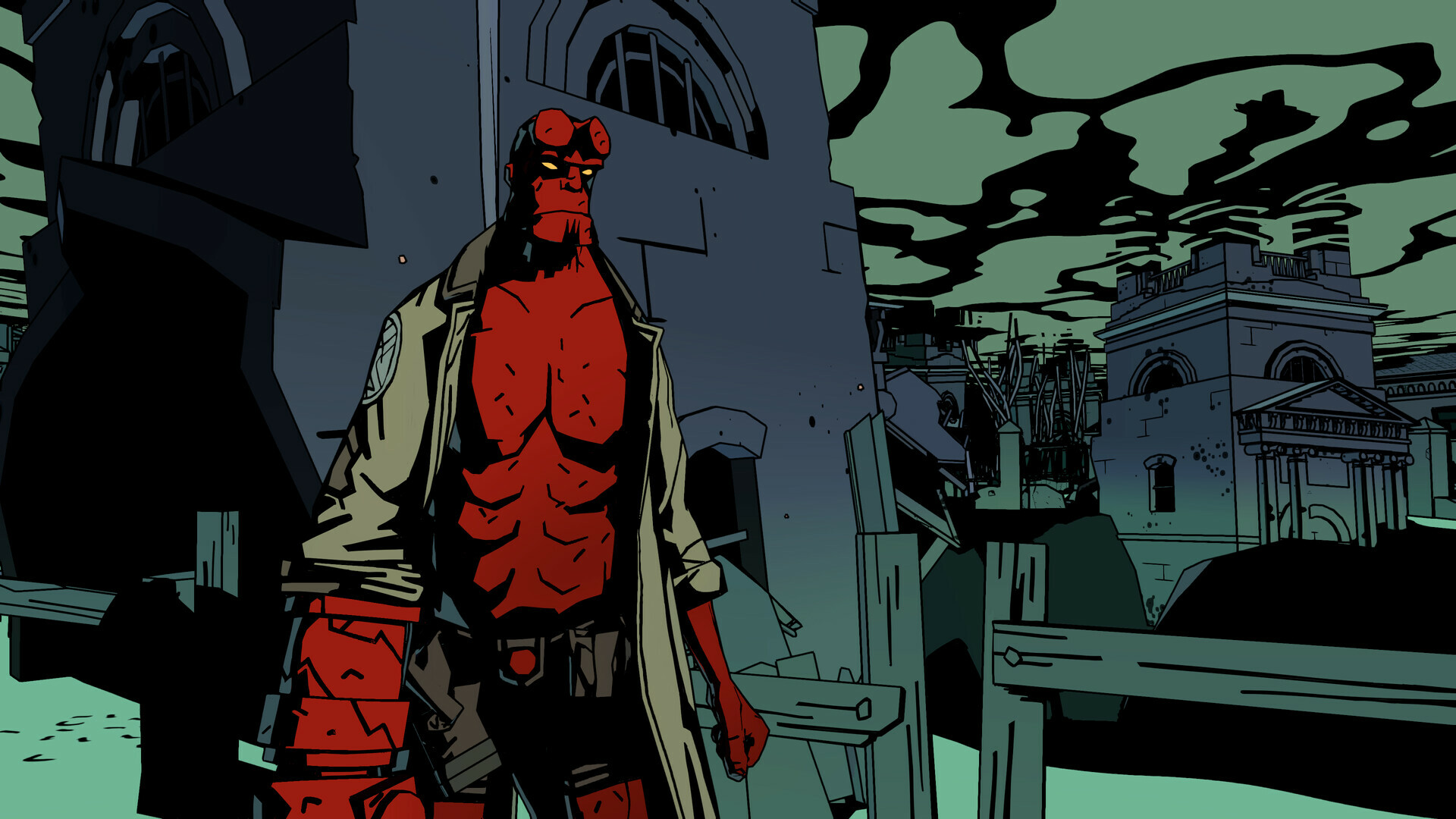

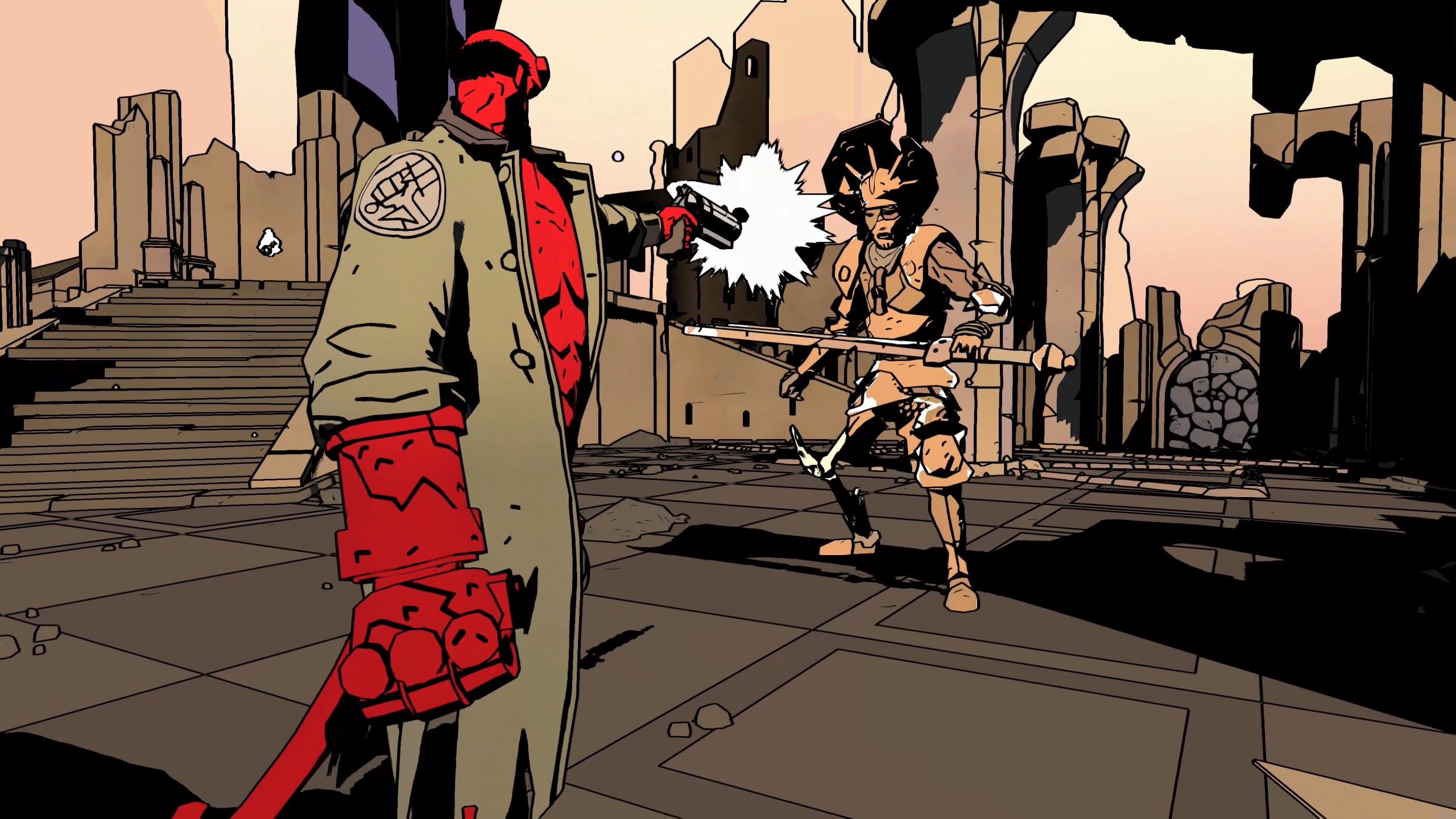
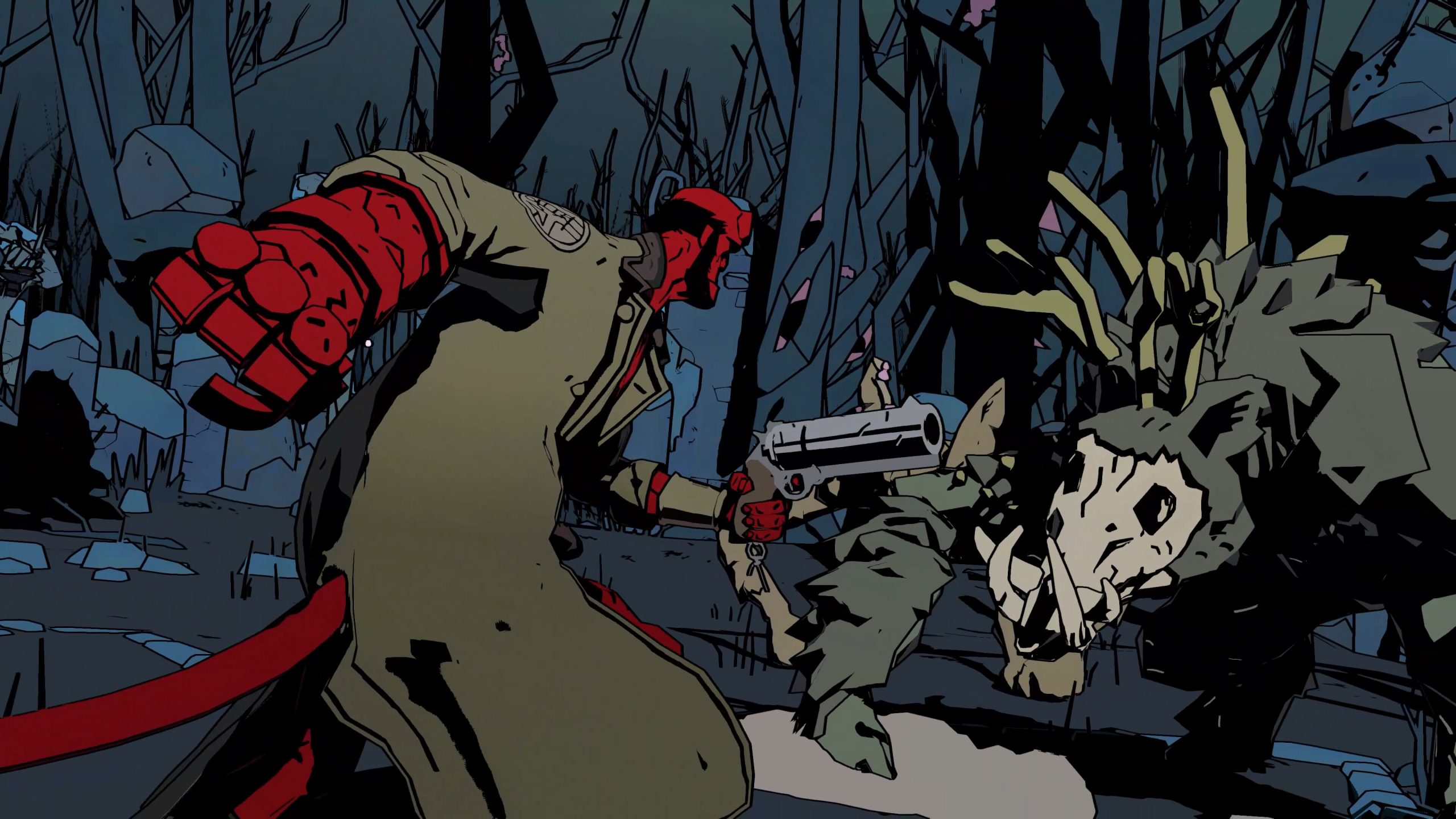
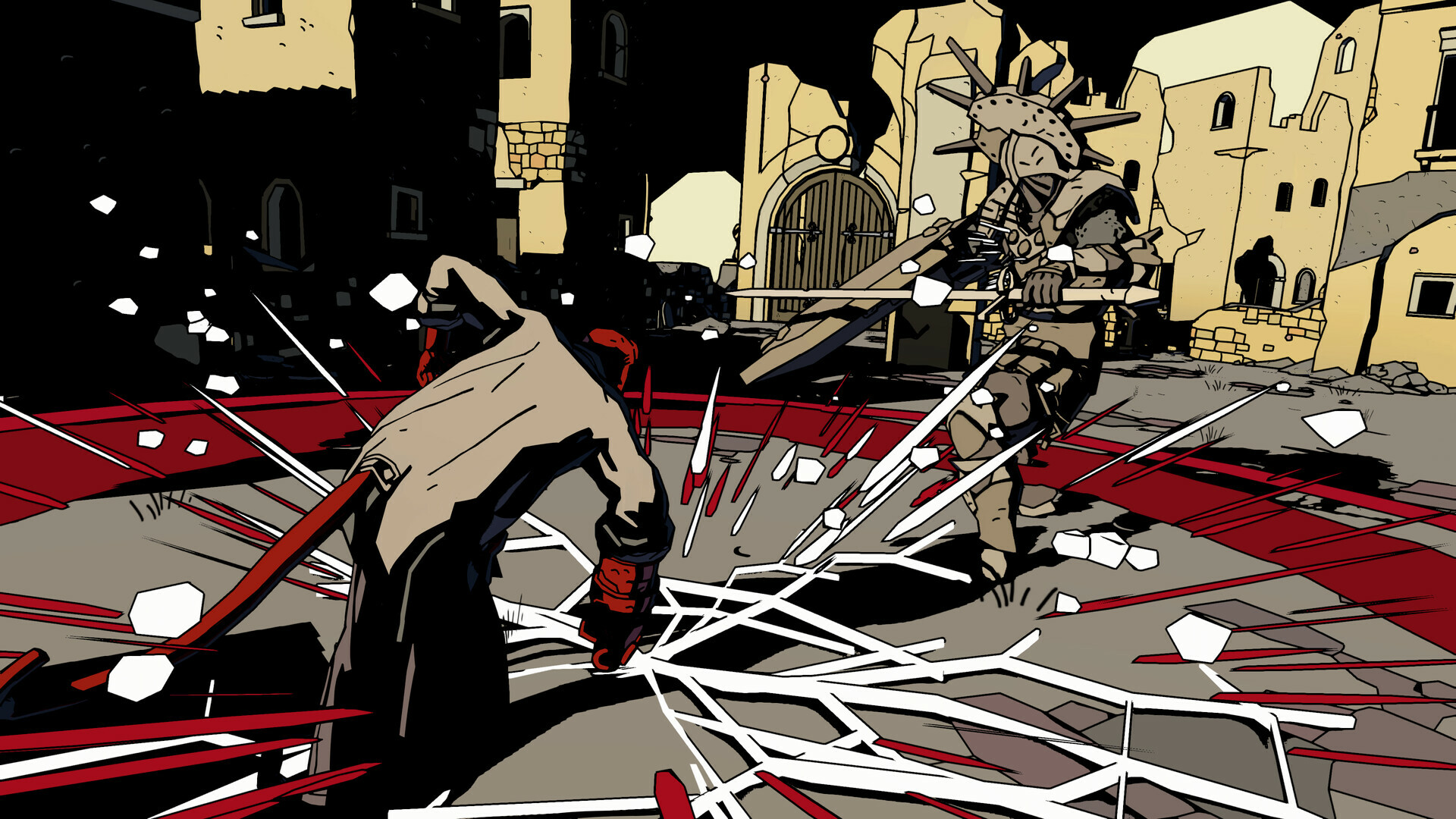

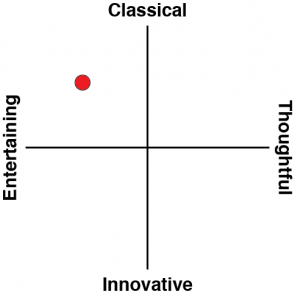
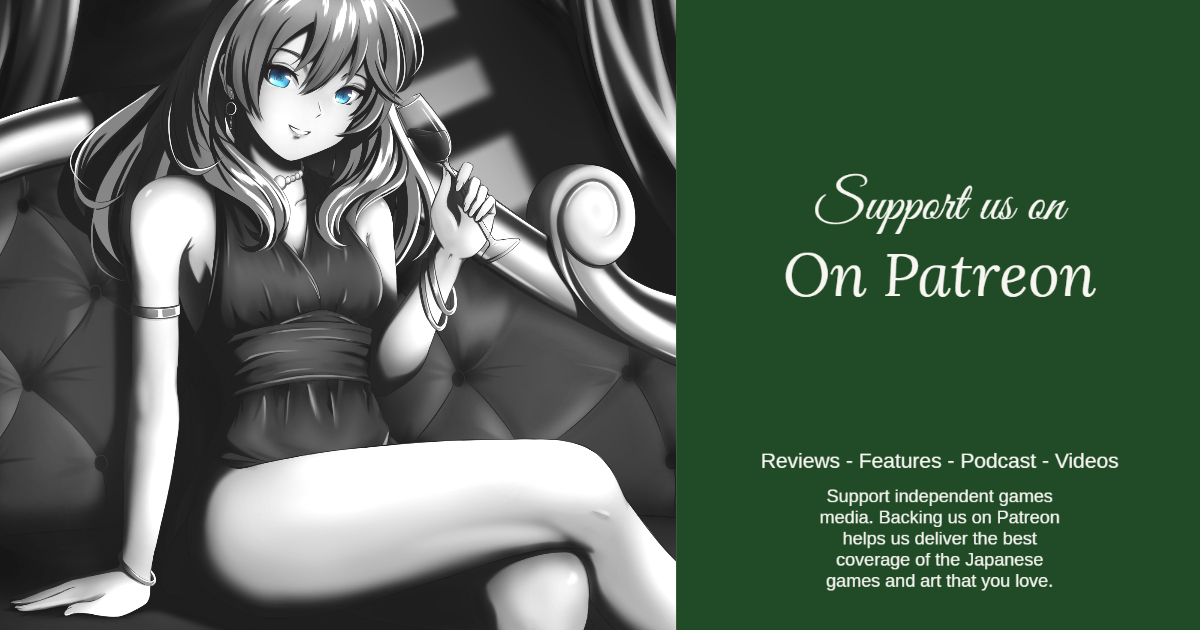
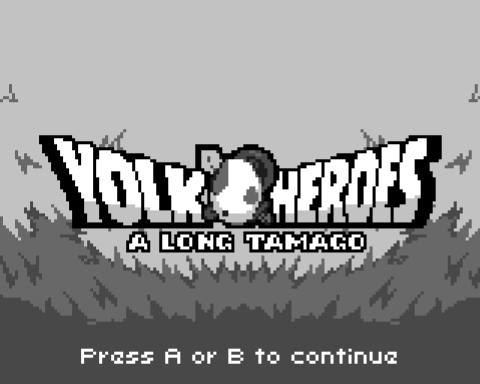




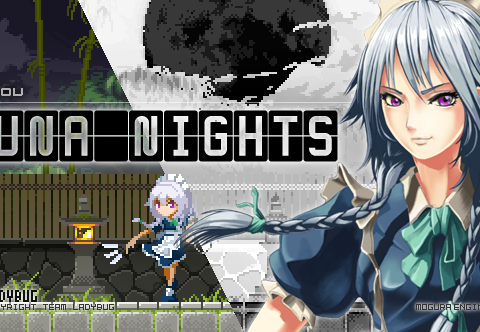
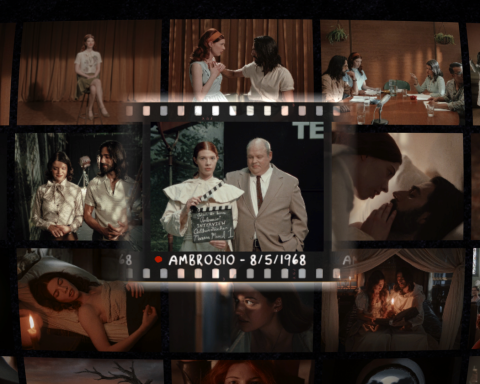
The introduction make it sound like Hellboy is this very philosophical and nuanced tale about a demon trying to be human. When the comic is mostly about him and Abe punching vaguely Lovecraftian monsters and often being very silly. I’m pretty sure most people would only recognize the monkey with a gun or “drinking with skeletons” panels. I mean, one of the reasons for why Hellboy rejected Hell given is that he likes pancakes. Despite its dark-looking art Hellboy is mostly superhero fun, just with a less traditional superhero.
Maybe the roguelike part is a bit odd, but Hellboy being an action game focused on combat sounds right on the money. Too bad they didn’t make it good.
To be fair, silly fun can still be very philosophical ;-). Most comic books do allow for a density of analysis – whether the artists necessarily meant it or not, as products of popular culture they tend to be a voice of popular culture that can be analysed as such.
Obviously not written by a Clive Barker or Stephen King though, that’s a fair call.